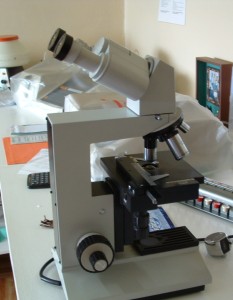 A recent trial court decision by the Honorable Sohail Mohammed, J.S.C., from the Superior Court of New Jersey in Passaic County, is making headlines for its precedent setting nature combined with the “scratch your head” intrigue certain headlines provide. More specifically, Judge Mohammed recently made a ruling that a man believed to be the father of two twin girls was actually only the father of one of the girls and, therefore, was only required to pay for child support that one child. In fact, this is the first paternity case of its kind in the State of New Jersey (and thus a matter of first impression) and only the third of its kind in the entire nation.
A recent trial court decision by the Honorable Sohail Mohammed, J.S.C., from the Superior Court of New Jersey in Passaic County, is making headlines for its precedent setting nature combined with the “scratch your head” intrigue certain headlines provide. More specifically, Judge Mohammed recently made a ruling that a man believed to be the father of two twin girls was actually only the father of one of the girls and, therefore, was only required to pay for child support that one child. In fact, this is the first paternity case of its kind in the State of New Jersey (and thus a matter of first impression) and only the third of its kind in the entire nation.
Judge Mohammed made this ruling after DNA testing was ordered which confirmed that the alleged father had fathered only one of the twins, while also confirming that he could not have fathered the other twin. The twin girls were born in January of 2013. Their mother named her romantic partner, the purported father of both twin girls, as the father in her application for public assistance and subsequent request for child support. However, it was ultimately determined through the mother’s testimony that she had had sexual relations with another male individual during the same week that she had had sexual relations with the purported father.
It was not until November of 2014 that the DNA testing came back with the shocking and unusual results. Dr. Karl-Hanz Wurzinger, a DNA expert, testified in the matter as to the unusual nature of this occurrence. More specifically, Dr. Wurzinger explained that the two eggs were fertilized inside the mother by two different fathers during the same menstrual cycle. He further referenced an academic study that he had published in 1997 which found that this sort of scenario, two fathers for one set of twins, occurs in about one out of every 13,000 reported paternity cases involving twins, which just goes to show you how rare such an occurrence can be.
In an article analyzing this story, Dr. Keith Eddleman, director of obstetrics at Mount Sinai Hospital in New York, further described “the process in which two ova are fertilized within the same menstrual cycle by two separate sperm is called superfecundation. Twins with different fathers are called bipaternal or heteropaternal twins,” Eddleman said. “Since an egg has a life span of 12 to 48 hours and a sperm is viable for seven to 10 days, there is about a week’s time for potential overlap and the fertilization of two eggs by two sperm from two separate acts of intercourse with different men,” according to Eddleman.
While this ruling certainly sets some precedence for this type of scenario in the State of New Jersey, it goes without saying that a number of questions remain unanswered, both legal and logical. From a logical standpoint, this ruling certainly begs the question: How many more incidents of this are there out there that we do not know about or that never come to light simply because the odds of it seem so far fetched that no one ever thought to verify it?
From a legal standpoint, it will be interesting to see how this case develops because it is certainly conceivable that these two twin girls are treat completely differently for purposes of child support because despite the fact that they are twins and share a mother, they do not share a father. Each respective case will be decided as any other case would be decided where there is one mother and multiple fathers. This case has the added twist that the children are twins. Accordingly, depending on the circumstances of each father, these twin girls could be the recipients of two very different child support obligations. The same thing could result as to the issue of custody because one twin girl’s best interests may be served by being in the primary care of the mother while the other twin girl’s best interests may be served by being in the primary care of the father, or they could both be best served by being in the primary care of their father which could result in the twins residing in separate households. When the time comes for the children to go to college, one twin girl could be afforded college education costs from her parents and the other may not. Accordingly, even though only a few possible issues have been raised, it will be interesting to see how this case develops and what different lives these twins could end up leading.
 New Jersey Divorce and Family Lawyer Blog
New Jersey Divorce and Family Lawyer Blog

